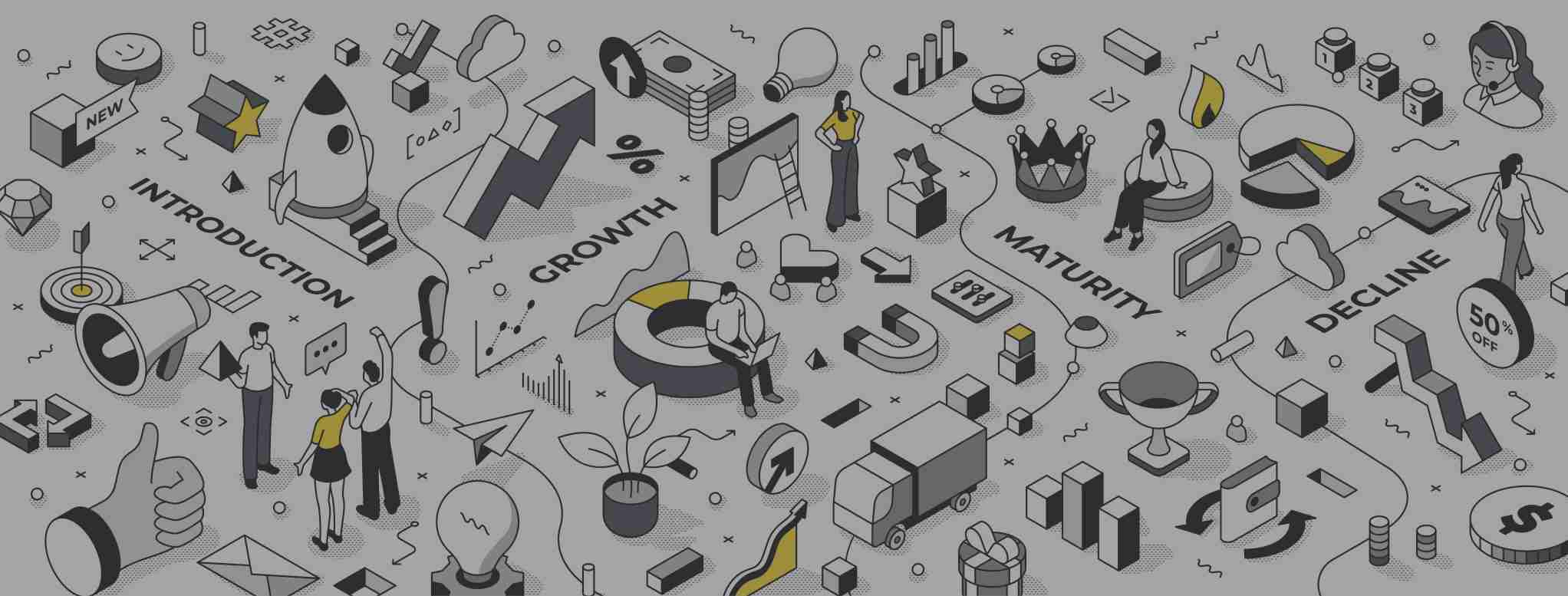At Digital BIAS, we pride ourselves on being skilled product marketers, particularly in the B2B SaaS and Fintech sectors. Our proprietary ARISE™ GTM Framework—Assess, Research, Ideate, Strategise, and Execute—guides our clients through a comprehensive process for the launch of their go-to-market strategy.
One integral component of the Research stage is conducting win-loss interviews. These interviews are invaluable for understanding why a sales opportunity converted into a customer or why it didn’t. Let’s explore why these interviews are essential and how they fit into our ARISE™ methodology.
Why Win-Loss Interviews Matter in Competitor Research
Win-loss interviews are pivotal in competitor research, especially when optimising your go-to-market strategy. These interviews offer direct insights into why customers choose your product over competitors or vice-versa, eliminating guesswork and providing concrete data on market perceptions and decision-making processes.
Additionally, win-loss interviews help identify gaps in your sales process and uncover opportunities for improvement, ensuring that your go-to-market strategy is competitive and aligned with your target audience's evolving expectations.
This comprehensive feedback loop is essential for staying ahead in the competitive landscape and driving sustained business growth.
Win-loss interviews are a goldmine of insights. They help us understand the decision-making process of our customers and prospects, shedding light on what works and what doesn’t in our sales and marketing strategies. By directly asking customers and prospects about their experiences, we can:
- Identify Market Perception: Understand how our brand is perceived in the market.
- Uncover Gaps: Discover gaps in our product or service that may be causing us to lose deals.
- Enhance Competitive Intelligence: Gain insights into what competitors are doing better and where we have the edge.
- Refine Messaging and Positioning: Adjust our value proposition to better resonate with our target audience.
As you can see, the rationale behind conducting these interviews goes beyond simple research. They are the lynchpin of future success for your sales, marketing, and customer success teams. By conducting effective win-loss interviews, your entire go-to-market strategy can pivot successfully based on real-world customer feedback.
Conducting Effective Win-Loss Interviews: A Crucial Element of Competitive Research
Conducting effective win-loss interviews is a cornerstone of Digital BIAS's competitive research activities. These interviews provide a direct line to understanding your customers' and prospects' motivations and objections, offering invaluable insights into why a sales opportunity was won or lost.
We can uncover critical information about market perception, competitive positioning, and product gaps by systematically gathering qualitative data through structured conversations.
This process takes the guesswork out of our strategic decisions, allowing us to refine your go-to-market strategies, improve your offerings, and ultimately enhance your competitive edge.
In essence, win-loss interviews empower us to make informed, data-driven decisions that drive growth and success in the B2B SaaS and Fintech markets.
To maximise the value of win-loss interviews, we follow a structured approach:
1. Selecting Interviewees
We aim for a balanced mix of wins and losses to get a comprehensive view. This includes:
- Recent Customers: Those who have recently chosen our solution.
- Lost Prospects: Those who evaluated our solution but chose a competitor or decided not to proceed.
2. Preparing Questions
Our questions are tailored to cover all stages of the buying funnel—awareness, consideration, and decision. Here are some key areas we focus on:
- Buyer Persona: Understanding the role and responsibilities of the interviewee.
- Brand Perception: How and when they first heard about us and how their perception evolved.
- Business Drivers: The problems they were looking to solve and why they sought a new solution.
- Selection Criteria: The must-have requirements and the most critical factors in their decision-making process.
- Buying Process: How they evaluated providers and the key moments in their evaluation.
- Competition: Which vendors did they consider, and how do we compare?
- Price: The importance of pricing in their decision.
- Sales Interaction: Their experience with our sales team and any areas for improvement.
3. Conducting the Interviews
We ensure that interviews are conducted by our team as we are unbiased parties, ideally to encourage honest and unfiltered feedback. If conducted in-house, we choose team members who were not directly involved in the sales process.
4. Analysing and Presenting Findings
Post-interview, we analyse the responses to identify common themes and actionable insights. These findings are shared across all relevant departments—sales, marketing, product management, and customer success—to ensure a unified approach to addressing issues and leveraging strengths.
By focusing on these four key areas, we can maximise the value of your investment in ARISE™ and ensure unbiased feedback. Let’s look into integrating these insights into the ARISE™ GTM Framework.
Integrating Insights into the ARISE™ Framework
Integrating insights from win-loss interviews into the ARISE™ Framework is powerful. These interviews provide a wealth of qualitative data that helps us understand the nuances of customer decision-making processes, market perceptions, and competitive dynamics.
By embedding this feedback into each stage of the ARISE™ methodology—Assess, Research, Ideate, Strategise, and Execute—we can make informed, data-driven decisions that continuously refine our go-to-market strategies.
Leveraging these insights helps us stay ahead of the competition, adapt to changing market conditions, and drive sustained growth for our clients in the B2B SaaS and Fintech sectors.
The insights gained from win-loss interviews enable us to refine our strategies continuously:
- Assess: Use feedback to evaluate current strategies and identify areas for improvement.
- Research: Deepen our understanding of market needs and competitive landscape.
- Ideate: Brainstorm new ideas and solutions based on customer feedback.
- Strategise: Develop targeted strategies to address identified gaps and leverage strengths.
- Execute: Implement changes and monitor their impact, ensuring continuous improvement.
At Digital BIAS, win-loss interviews are a strategic tool that informs every stage of our ARISE™ GTM Framework.
By understanding the reasons behind our wins and losses, we can make data-driven decisions that enhance our go-to-market strategies, ultimately driving sustainable growth for our clients in the B2B SaaS and Fintech sectors.
But implementing the insights from the research isn’t always easy. Internal resistance to data-driven insights is a common occurrence and one that can make or break your internal culture.
Let’s look at some of the challenges you may well encounter implementing change based on customer feedback.

The main challenges in implementing win-loss interview findings
Here are some of the main hurdles companies often face when trying to put win-loss interview insights into action:
1. Overcoming Internal Resistance
One of the biggest challenges is dealing with internal resistance to change. Win-loss interviews often reveal uncomfortable truths about a company's products, processes, or people. Sales teams, product managers, or executives may be defensive about negative feedback or reluctant to alter established practices. Overcoming this resistance requires strong leadership support and a culture that values continuous improvement.
2. Prioritising and Actioning Insights
Win-loss interviews typically generate a wealth of information, which can be overwhelming. Companies often need help prioritising which insights to act on first and how to translate them into concrete action plans. It's crucial to filter out obvious or outdated information and focus on the most impactful findings that align with current business objectives.
3. Ensuring Cross-Functional Collaboration
Effective implementation of win-loss insights often requires coordination across multiple departments - sales, marketing, product development, customer success, etc. Silos between these teams can hinder the sharing of information and the execution of improvement initiatives. Establishing clear communication channels and collaborative processes is essential.
4. Maintaining Consistency and Momentum
A win-loss analysis is most effective when it's an ongoing process rather than a one-time effort. However, many companies need help conducting interviews and consistently implementing findings over time. Keeping the program running smoothly requires dedicated resources, regular review cycles, and continuous buy-in from stakeholders.
5. Balancing Qualitative Insights with Quantitative Data
While win-loss interviews provide rich qualitative insights, companies sometimes struggle to integrate these findings with quantitative data from other sources. Striking the right balance and using both types of information to inform decision-making can be challenging but is crucial for a comprehensive understanding of market dynamics.
6. Addressing Resource Constraints
Implementing changes based on win-loss findings often requires time, money, and personnel investment. Resource constraints can limit a company's ability to act on insights, particularly if they involve significant product changes or process overhauls.
7. Measuring Impact and ROI
It can be difficult to directly attribute business improvements to win-loss interview findings, making it challenging to measure the ROI of the program. This can make it harder to justify continued investment in win-loss analysis and the implementation of its findings.
8. Avoiding Bias and Ensuring Objectivity
There's a risk of confirmation bias when interpreting win-loss interview results, where teams might focus on findings that confirm existing beliefs while dismissing contradictory information. Maintaining objectivity in analysis and implementation is crucial but challenging.
To overcome these challenges, companies need to approach win-loss analysis implementation strategically. This includes securing executive sponsorship, establishing clear processes for prioritising and actioning insights, fostering a culture of continuous improvement, and ensuring regular follow-ups to track progress and demonstrate value.
By addressing these hurdles head-on, organisations can more effectively leverage the valuable insights gained from win-loss interviews to drive meaningful improvements in their go-to-market strategies.

How to secure executive sponsorship for a win-loss program
Securing executive sponsorship from key stakeholders for a win-loss program is crucial for its success and impact across the organisation. To achieve this:
- Start by emphasising the strategic importance of win-loss analysis in driving business growth and improving sales performance.
- Highlight how the program benefits multiple departments, including sales, marketing, product management, and executive leadership, by providing data-driven insights for decision-making.
- Present a clear vision of how the program will be implemented, including the resources required and the potential return on investment.
- Demonstrate how executive involvement can accelerate the implementation of findings and drive positive change org-wide.
- Finally, propose starting with a small-scale pilot program to showcase early wins and build momentum for broader adoption.
By aligning the win-loss program with key business objectives and demonstrating its cross-functional value, you'll be more likely to secure the executive buy-in necessary for long-term success.
If you want to optimise your go-to-market strategy and leverage the power of win-loss interviews, let’s connect. Together, we can turn insights into action and drive your business forward. Use the form in the footer to book time with our team.




